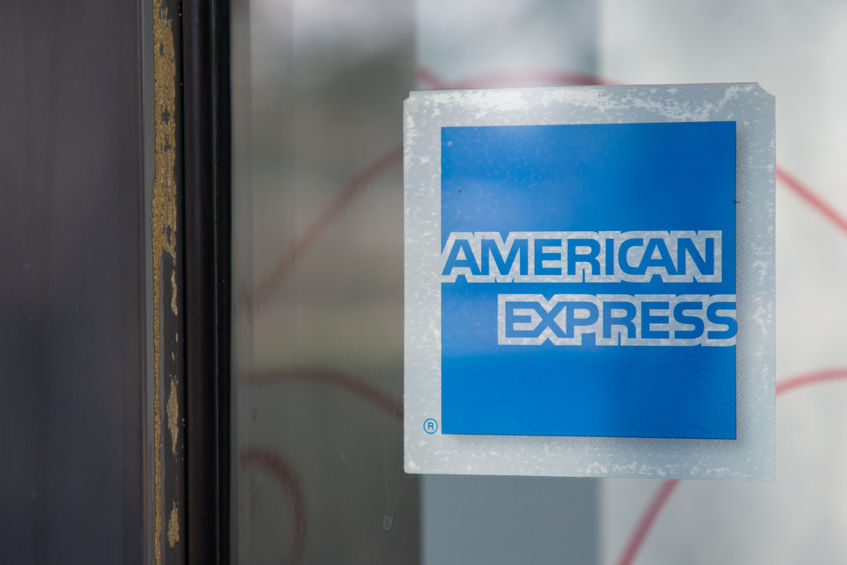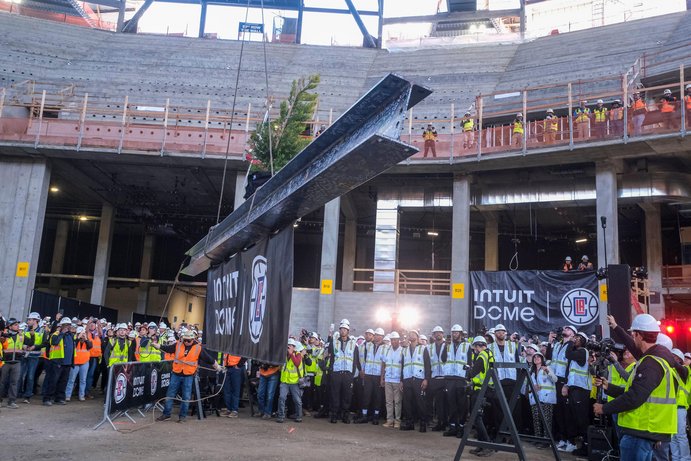Articles by deBanked Staff
AMEX: ‘We’re not seeing small businesses spend more’
January 28, 2024 “We’re not seeing existing small businesses spend more than they spent the year before,” said Stephen Squeri, CEO of American Express, “And that’s not an American Express phenomenon, that is an industry phenomenon.”
“We’re not seeing existing small businesses spend more than they spent the year before,” said Stephen Squeri, CEO of American Express, “And that’s not an American Express phenomenon, that is an industry phenomenon.”
Squeri, who was speaking on the company’s Q4 earnings call, was answering questions about what they’re seeing with small business customers. Although spending in particular is not increasing, they still want loans and cards. “As far as card acquisition within small businesses, that still remains strong,” he said. “As far as small businesses, looking at our platform, and looking at our loans, and so forth, that remains strong. And the credit quality remains strong.”
The trend is not concerning to American Express, who explained that write-off and delinquency levels were actually lower now than they were before the pandemic, despite ticking up just a little bit higher.
Debanked on SNL
January 28, 2024Saturday Night Live ran an awkward segment last night about debanked. Make sure you watch it until the end.
As a good refresher, the word debanking was ranked one of the top 10 most significant words of 2023 and debank is in the dictionary.
Financial Service Associations Urge Legislation on IRS Income Verification
January 25, 2024 The IRS doesn’t want financial service companies to be able to verify the income of customers, at least not through official channels like the Income Verification Express Services (IVES) system. On January 2 and 3, the IRS announced it would only allow IVES transcripts to be made available “to mortgage lending firms for the sole purpose of obtaining a mortgage on residential or commercial real property (land and buildings).” Government agencies will also not be allowed to use IVES.
The IRS doesn’t want financial service companies to be able to verify the income of customers, at least not through official channels like the Income Verification Express Services (IVES) system. On January 2 and 3, the IRS announced it would only allow IVES transcripts to be made available “to mortgage lending firms for the sole purpose of obtaining a mortgage on residential or commercial real property (land and buildings).” Government agencies will also not be allowed to use IVES.
“The IRS is implementing the provisions of the Taxpayer First Act (P. Law 116-25) with increased privacy and security requirements for access to confidential tax information,” it announced. “If tax transcript information is required by your firm for other than securing a mortgage, we recommend requesting it directly from the taxpayer.”
But relying on getting the information directly from the taxpayer defeats the whole purpose in more ways than one, many financial service trade associations say. On Wednesday, a letter jointly signed by the American Bankers Association, America’s Credit Unions, American Fintech Council, Consumer Data Industry Association, Electronic Transactions Association, Financial Technology Association, Innovative Lending Platform Association, Independent Community Bankers Association, Mortgage Bankers Association, Responsible Business Lending Coalition, and Small Business Finance Association urged senior ranking members of Congress to pass H.R. 3335. Dubbed the IRS eIVES Modernization and Anti-Fraud Act, it would “ensure the IRS follows the original intent of Congress to modernize the system and prevent disruptions to the consumer and commercial lending industries.”
Another Small Business Loan Marketplace is Getting a Massive Venue
January 22, 2024 What’s the difference between a typical bank having naming rights to a sporting arena and a fintech lender? The fintech lender will attempt to serve as a one-stop-shop for everything. And that’s important because this October the Intuit Dome will open its doors in Inglewood, California and become the hometown arena for the LA Clippers. Intuit has a lot of brands. According to the NBA, Intuit subsidiaries TurboTax, QuickBooks, Credit Karma, and Mailchimp will all feature prominently in the venue experience. That draws attention to QuickBooks Capital, the company’s small business lending division which is presently generating more than $1 billion a year in loans. Intuit’s got a fallback option for businesses that might not be suitable for them directly, an automated marketplace that connects business owners with other lenders. It’s been so successful that Intuit states they’ve originated more than $2 billion in loans through it.
What’s the difference between a typical bank having naming rights to a sporting arena and a fintech lender? The fintech lender will attempt to serve as a one-stop-shop for everything. And that’s important because this October the Intuit Dome will open its doors in Inglewood, California and become the hometown arena for the LA Clippers. Intuit has a lot of brands. According to the NBA, Intuit subsidiaries TurboTax, QuickBooks, Credit Karma, and Mailchimp will all feature prominently in the venue experience. That draws attention to QuickBooks Capital, the company’s small business lending division which is presently generating more than $1 billion a year in loans. Intuit’s got a fallback option for businesses that might not be suitable for them directly, an automated marketplace that connects business owners with other lenders. It’s been so successful that Intuit states they’ve originated more than $2 billion in loans through it.
This seamless integration of referrals to other lenders is what makes the marketing campaign via arena naming rights so potent. And they won’t be the first ones to do it. SoFi, for example, whose football stadium is in walking distance to the Intuit Dome, just announced its own small business loan marketplace. SoFi Stadium was home to the Super Bowl in 2022 and will be again in 2027. It will also be home to the Olympics in 2028. Not a bad way to get one’s name out there.
Seven States Reintroduce Commercial Financing Bills
January 20, 2024 They’re BACCKKKK. The following states legislatures all have new bills in front of them for consideration.
They’re BACCKKKK. The following states legislatures all have new bills in front of them for consideration.
North Carolina – Small Business Truth in Financing Act
Kansas – The commercial financing disclosure Act
Missouri – Commercial Financing Disclosure Law
New Jersey – An Act concerning commercial financing
Illinois – Small Business Truth in Lending Act
California – Commercial Financing Bill
SoFi Launches Small Business Loan Marketplace
January 18, 2024 SoFi small business customers can now get approved for a loan and funded up to $2 million in 24 hours. Structured as a marketplace where SoFi itself is not the lender, the company announced that “With one quick and simple search, business owners will be connected with SoFi’s network of financial providers who can help them get the capital they need.”
SoFi small business customers can now get approved for a loan and funded up to $2 million in 24 hours. Structured as a marketplace where SoFi itself is not the lender, the company announced that “With one quick and simple search, business owners will be connected with SoFi’s network of financial providers who can help them get the capital they need.”
SoFi had flirted with the idea of small business loans previously and this appears to be their solution.
Judging by SoFi’s marketplace home page, OnDeck and LendKey are at least two of the lenders on the platform. Although the others were not immediately visible, the company said it “will continue to expand its network to include more providers and financial solutions for small businesses.”

Prosper Loan Originations down 50% YoY in Q3
January 17, 2024 Online consumer lending stalwart Prosper Marketplace originated $493.8M in loan originations in its last reported quarter. While it sounds like a lot, the company said that’s a decrease of 53% from the same period in 2022. Prosper originated $1.72B in loans for the first 9 months of 2023 vs $2.5B in loans for the first 9 months of 2022.
Online consumer lending stalwart Prosper Marketplace originated $493.8M in loan originations in its last reported quarter. While it sounds like a lot, the company said that’s a decrease of 53% from the same period in 2022. Prosper originated $1.72B in loans for the first 9 months of 2023 vs $2.5B in loans for the first 9 months of 2022.
“…the mix of personal loan originations on the Prosper platform reflects a significant decrease in investor appetite for whole loan purchases under the current economic environment, specifically for personal loans not assigned Prosper ratings,” the company said in its financial reports. “These personal loans are sold only to institutional investors and based on specific underwriting criteria and custom risk models developed by these investors.”
Prosper Marketplace logged a cumulative net loss of $93M for the first three quarters of 2023.
Second Hearing on Broker Licensing in California
January 16, 2024The Judiciary Committee of the California State Senate was the next in line to discuss the continued push for commercial finance broker licensing. Several organizations came forward in support of the bill while others said that changes were necessary to the current proposal. The licensing bill (SB 869) was also discussed the day before in the Banking Committee.
You can watch the full thing below:






























